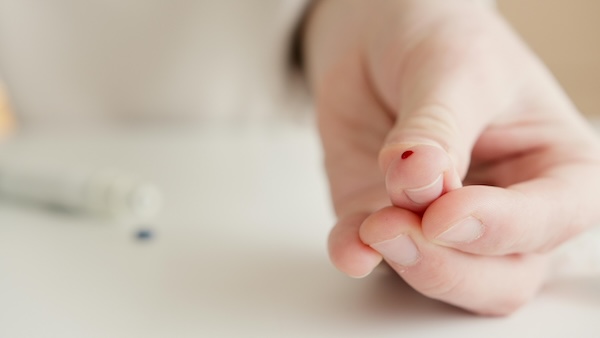
When you first hear the words gestational diabetes (GD), some moms might feel a mix of worry, guilt, and overwhelm. If you’ve just been told you have GD, first of all, take a deep breath. GD sounds scary, but it’s also common, manageable, and most importantly, there are so many resources available to help you.
At Mahmee, we care for your whole journey - from prenatal care to postpartum recovery - and we know that nutrition is a critical piece of that. We spoke with Jovanka Ciares, a nutrition and wellness coach at Mahmee, about how to support your body through GD with small, powerful steps.
Here’s what she wants every mom to know:
Gestational diabetes (GD) is a condition that can develop during pregnancy when the body struggles to regulate blood sugar levels effectively. During pregnancy, hormonal changes can make it harder for insulin (the hormone that helps move sugar from your blood into your cells) to do its job. When this happens, blood sugar levels rise and can affect both your health and your baby’s. Blood sugar is directly influenced by the type of foods you eat during pregnancy - carbs or fats for example.
Unlike Type 1 or Type 2 diabetes, gestational diabetes is caused by pregnancy itself, and it usually goes away after birth. But that doesn’t mean it should be taken lightly.
When unmanaged, GD can increase the risk of complications like preeclampsia, high birth weight, the need for a C-section, and low blood sugar in newborns.
“Your body is doing something incredibly complex and powerful,” says Mahmee nutrition coach Jovanka Ciares. “Gestational diabetes is not a failure - it’s a signal that your body needs more support right now during this huge journey you're on."
That’s why monitoring and managing GD, with the help of a compassionate care team - including your provider, nurse, prenatal doula, and often a lactation consultant - can make a big difference for both you and your baby.
The key principle Jovanka teaches moms experiencing this condition is to practice balance in life and be more intentional with your nutrition. That means doing things like pairing complex carbs with protein and healthy fats at each meal.
For example, if breakfast is oatmeal, add a hard-boiled egg and a sprinkle of cinnamon. For snack time? Try apple slices with almond butter. “When you build meals this way, you slow sugar absorption and feel better longer,” Jovanka says.
She also recommends spacing meals out differently. Instead of three big meals, aim for five or six small ones, which helps you avoid dramatic spikes and drops in blood sugar and energy levels.
Herbal teas can also offer significant support in managing gestational diabetes. Some herbal teas may help regulate blood sugar levels, reduce inflammation, and provide emotional comfort during a time when moms are already navigating a lot. “Cinnamon tea is my go-to,” Jovanka added
What you eat plays a major role in managing gestational diabetes, because every bite has an impact on your blood sugar. Take oatmeal, for example: it’s a carbohydrate-rich food, which means it can raise blood sugar levels. But that doesn’t mean it’s off-limits. The key is how you eat it, including the portion size, what time of day you have it, and what you pair it with. Combining carbs with protein, fiber, or healthy fats can help slow digestion and keep blood sugar more stable.
Managing gestational diabetes is not necessarily about counting every bite; it’s about noticing what types of food work for you and your body. Keeping a simple food journal can help you and your care team notice personal patterns. “Maybe oatmeal works, but white rice doesn’t for you. That’s a powerful way to understand your body and its reactions. Once you know that, you can adjust without stress,” she said.
Movement can also make a big difference in managing your GD, but you don’t need to do a lot of exercise. Even light physical activity can have a significant impact. “Try a 10-minute walk after meals,” Jovanka said. “It helps with blood sugar regulation, and relaxes and clears your mind, too.” If walking isn’t doable, light stretching - or prenatal yoga can be a great alternative.
You definitely don’t need to skip meals or count every calorie. That may hurt you more than help you if doing so causes you more stress during the pregnancy. This is a season for building and nourishing and not restricting. Remain flexible in your routines and how you allow yourself to ask for support: let friends bring you food (instead of more onesies), say yes to help, and give yourself grace.
“This is not the time for pressure. It’s a time for support,” Jovanka reminds us.
Managing GD can feel like a lot but every time you choose a balanced meal, take a walk, or ask for support, you’re taking care of yourself and your baby. Every little step counts.
If you have questions about nutrition in pregnancy or getting support during in the postpartum journey, the team at Mahmee is here to help.

